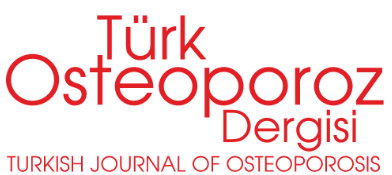ABSTRACT
Treatment with anti-tumour necrosis factor-alpha (anti-TNF-α) drugs provides significant improvements in many chronic inflammatory diseases with common pathogenesis, including Crohn’s disease, ankylosing spondylitis and psoriasis. However, during these treatments, paradoxically, cutaneous side effects such as psoriasis can be seen. Although its pathophysiology is well understood, it is thought that TNF-α blockade triggers locally excessive interferon-α production in predisposed subjects and causes psoriatic lesions. In this case report, we present a 50-year-old female patient with ankylosing spondylitis and Crohn’s disease who used adalimumab and then infliximab and developed psoriasiform lesions due to these drugs. Anti-TNF-α treatment was discontinued, and ustekinumab was started. Psoriasiform rashes improved; disease activity of ankylosing spondylitis and Crohn’s disease was suppressed. Ustekinumab may be a good option to manage ankylosing spondylitis and patients with Crohn’s disease who develop psoriasiform rashes due to anti-TNF-α drugs.
Keywords:
Psoriasis, Crohn’s disease, ankylosing spondylitis, ustekinumab
References
1Nidegger A, Mylonas A, Conrad C. Paradoxical psoriasis induced by anti-TNF -a clinical challenge. Rev Med Suisse 2019;15:668-71.
2Ciccarelli F, De Martinis M, Sirufo MM, Ginaldi L. psoriasis induced by anti-tumor necrosis factor alpha agents: a comprehensive review of the literature. Acta Dermatovenerol Croat 2016;24:169-74.
3Guerra I, Pérez-Jeldres T, Iborra M, Algaba A, Monfort D, Calvet X, et al. Incidence, clinical characteristics, and management of psoriasis ınduced by anti-TNF therapy in patients with ınflammatory bowel disease. Inflamm Bowel Dis 2016;22:894-901.
4Papp KA, Langley RG, Lebwohl M, Krueger GG, Szapary P, Yeilding N, et al. Efficacy and safety of ustekinumab, a human interleukin-12/23 monoclonal antibody, in patients with psoriasis: 52-week results from a randomised, double-blind, placebo-controlled trial (PHOENIX 2). Lancet 2008;371:1675-84.
5Sandborn WJ, Feagan BG, Fedorak RN, Scherl E, Fleisher MR, Katz S, et al. A randomized trial of Ustekinumab, a human ınterleukin-12/23 monoclonal antibody, in patients with moderate-to-severe Crohn’s disease. Gastroenterology 2008;135:1130-41.
6Kavanaugh A, Puig L, Gottlieb AB, Ritchlin C, You Y, Li S, et al. Efficacy and safety of ustekinumab in psoriatic arthritis patients with peripheral arthritis and physician-reported spondylitis: post-hoc analyses from two phase III, multicentre, double-blind, placebo-controlled studies (PSUMMIT-1/PSUMMIT-2). Ann Rheum Dis 2016;75:1984-8.
7Boyman O, Comte D, Spertini F. Adverse reactions to biologic agents and their medical management. Nat Rev Rheumatol 2014;10:612-27.
8Barthel C, Biedermann L, Frei P, Vavricka SR, Kündig T, Fried M, et al. Induction or exacerbation of psoriasis in patients with Crohn’s disease under treatment with anti-TNF antibodies. Digestion 2014;89:209-15.
9Collamer AN, Battafarano DF. Psoriatic skin lesions induced by tumor necrosis factor antagonist therapy: clinical features and possible immunopathogenesis. Semin Arthritis Rheum 2010;40:233-40.
10Harrison MJ, Dixon WG, Watson KD, King Y, Groves R, Hyrich KL, et al. Rates of new-onset psoriasis in patients with rheumatoid arthritis receiving anti-tumour necrosis factor therapy: results from the British Society for Rheumatology Biologics Register. Ann Rheum Dis 2009;68:209-15.
11Collamer AN, Guerrero KT, Henning JS, Battafarano DF. Psoriatic skin lesions induced by tumor necrosis factor antagonist therapy: A literature review and potential mechanisms of action. Arthritis Rheum 2008;59:996-1001.
12Ko JM, Gottlieb AB, Kerbleski JF. Induction and exacerbation of psoriasis with TNF-blockade therapy: a review and analysis of 127 cases. J Dermatolog Treat 2009;20:100-8.
13Sherlock ME, Walters T, Tabbers MM, Frost K, Zachos M, Muise A, et al. Infliximab-Induced Psoriasis and Psoriasiform Skin Lesions in Pediatric Crohn Disease and a Potential Association With IL-23 Receptor Polymorphisms. J Pediatr Gastroenterol Nutr 2013;56:512-8.
14Harrison MJ, Dixon WG, Watson KD, King Y, Groves R, Hyrich KL, et al. Rates of new-onset psoriasis in patients with rheumatoid arthritis receiving anti-tumour necrosis factor therapy: results from the British Society for Rheumatology Biologics Register. Ann Rheum Dis 2009;68:209-15.
15Severs GA, Lawlor TH, Purcell SM, Adler DJ, Thompson R. Cutaneous adverse reaction to infliximab: report of psoriasis developing in 3 patients. Cutis 2007;80:231-7
16Takahashı H, Hashımoto Y, Ishıda-Yamamoto A, Ashıda T, Kohgo Y, Iızuka H. Psoriasiform and pustular eruption induced by infliximab. J Dermatol 2007;34:468-72.
17Iborra M, Beltrán B, Bastida G, Aguas M, Nos P. Infliximab and adalimumab-induced psoriasis in Crohn’s disease: A paradoxical side effect. J Crohn’s Colitis 2011;5:157-61.
18Joyau C, Veyrac G, Dixneuf V, Jolliet P. Anti-tumour necrosis factor alpha therapy and increased risk of de novo psoriasis: is it really a paradoxical side effect? Clin Exp Rheumatol 2012;30:700-6.
19Lee HY, Woo CH, Haw S. Paradoxical flare of psoriasis after ustekinumab therapy. Ann Dermatol 2017;29:794-5.
20Suh HY, Ahn JY, Park MY, Youn JI. Exacerbation of infliximab-induced paradoxical psoriasis after ustekinumab therapy. J Dermatol 2018;45:332-3.



